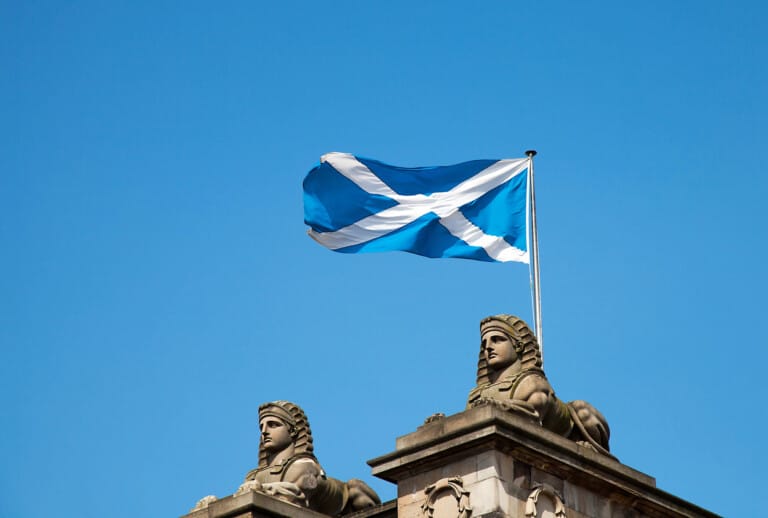Introduction
After the Union of 1707, Scotland started to export goods massively: especially linen, cattle, and tobacco (Glasgow was nicknamed the “tobacco metropolis”).
Gradually the Union came to represent career opportunities for the upper-class and middle-class Scots: some joined the Army in India, some became merchants in London and some others migrated to North America as settlers.
1760s: 1st Industrial Revolution in Scotland. Until then, Scotland was a rural country. It became rapidly urbanized.
1760-1830: Scottish economy based on the textile industry (cotton, linen and wool).
After 1830, new industries appeared: the steel industry and the shipbuilding industry.
During Victorian Scotland (1837-1901), all industries were owned by the Scots. They were prosperous and exported their goods all over the world. There was no feeling of discontent for they were proud to be contributing to the Empire, adding up their prosperity.
In the 1880s, Scottish home rule (more autonomy) emerged as an issue in Scottish politics. It was the result of 3 factors:
1. A growing feeling in Scotland that the Government was not devoting enough time and attention to Scotland
In comparison with the time devoted to Ireland, Scotland felt neglected by the Government. The Irish people were rewarded for their violence when non-violent Scotland did not get any attention.
In 1853, the National Association for the Vindication of Scottish Rights. It was close to the Conservative Party and complained about the fact that Ireland received more support from the British Government than Scotland and that Westminster lacked Scottish MPs.
2. The conversion of William Gladstone to Irish Home Rule
In 1886, William Gladstone (a Liberal MP) introduced a Bill before Parliament: the Irish Home Rule Bill. It was due to the pressure of the Home Rule Association created in 1870 in Dublin. The association wanted a Parliament responsible for domestic affairs.
In 1871, in Aberdeen, Gladstone (not converted yet) said that if home rule was granted to Ireland then the same should apply to Scotland. In 1885, the Post of Secretary for Scotland was re-established (it had been abolished after the battle of Culloden in 1745) to promote Scotland’s interests and voice its grievances to the British Parliament.
The Scottish Office was created the same year: it was purely administrative (the Post of Secretary for Scotland led it). When Scots compared what they had (a people in London) to what Ireland had (its own Parliament), anger progressively arose.
In 1886, the Scottish Home Rule Association was set up. It was not a political party but a nationalist organization close to the Liberal Party. They wanted a Parliament responsible for Scottish domestic affairs and did not want to end the Union.
3. A growing nationalist sentiment in Scotland
London was considered as the center of the Empire and this was resented in Scotland. As for Government subsidies, London was getting the lion’s share, especially for galleries and museums. As a consequence: renewed interest in everything Scottish in Scotland, reinforced their distinct national identity.
Several societies were created in Scotland to compete with their rivals in London:
- 1884: Scottish Geographical Society
- 1886: Scottish Historical Society
1895-1905: Scottish Home Rule was not on the political agenda of the Conservative Government (they were against it).
1906: the Liberals got the power but the question of Scottish Home Rule did not come immediately.
1910-1914: British politics dominated by:
- Irish Home Rule: legislation passed in 1912.
- Scottish Home Rule: The Bill was debated in 1913 but the process was interrupted by World War I.
After the war, a 2nd Scottish Home Rule Association was created for the first one became inactive.
The objectives remained the same: more autonomy and not independence. Not a political party and no candidates. Will to remain non-partisan. Means used: putting pressure on the Government and the MP representing Scotland in Parliament. Despite this pressure, there was no progress for Scotland at the Parliamentary level.
1921: the Parliament voted for the Government of Ireland, creating the Irish Free State.Even after 1921, no results.
1920-1934: Creation of organizations and political parties
1920: Scots National League: a much more radical organization: they wanted independence, and promoted the Gaelic culture and language. Yet, it did not have a strategy to achieve independence. They lacked unity and split. The result of the split was:
1926: the Scottish National Movement: focused on culture. No strategy to achieve independence.
1927: the Glasgow University Scottish Nationalist Organization: created by students and members of the Labour Party. John MacCormick was one of the leaders and he is still considered today as the father of modern nationalism. He was a moderate and wanted Scotland to stay in the UK. He managed to convince the other nationalist organizations to create a nationalist party.
1928: the National Party of Scotland: left-wing party. Objective: not independence but Scotland within the framework of the UK. The NPS was a party but his electoral results were poor.
Divisions appeared for the NPS was the sum of different organizations with different opinions (moderates and radicals). The radicals said the poor results were due to the moderates.
1932: the Scottish Party: right-wing party in Glasgow. An embodiment of reasonable nationalism. The press was very favourable to them.
As there was not enough room for 2 nationalist parties a fusion had to be made between the Nationalist Party of Scotland and the Scottish Party. They merged in 1934.
1934: the Scottish National Party: born of a left-wing party and a right-wing party. The SNP is still divided, not homogenous, and has various political affiliations.

